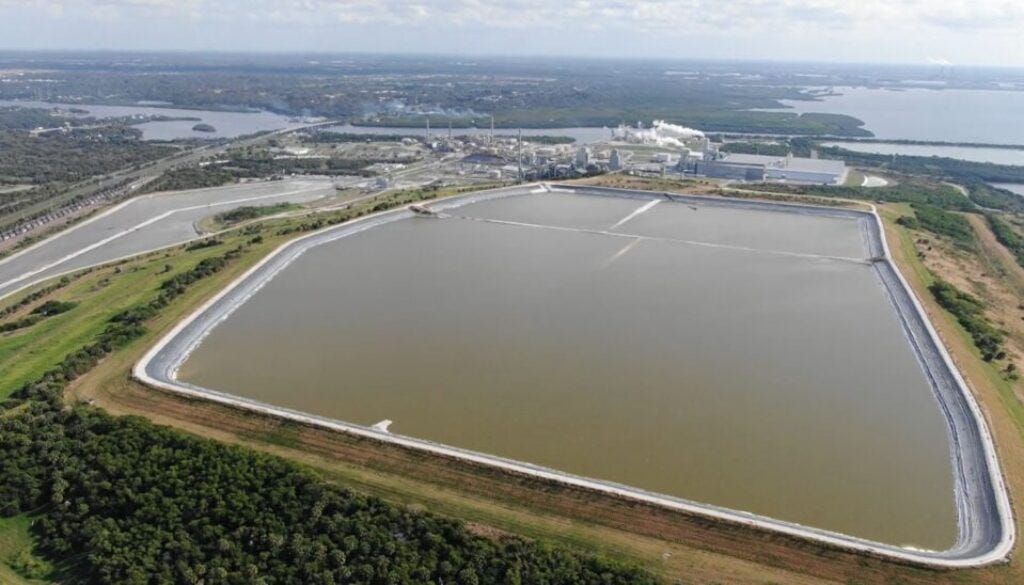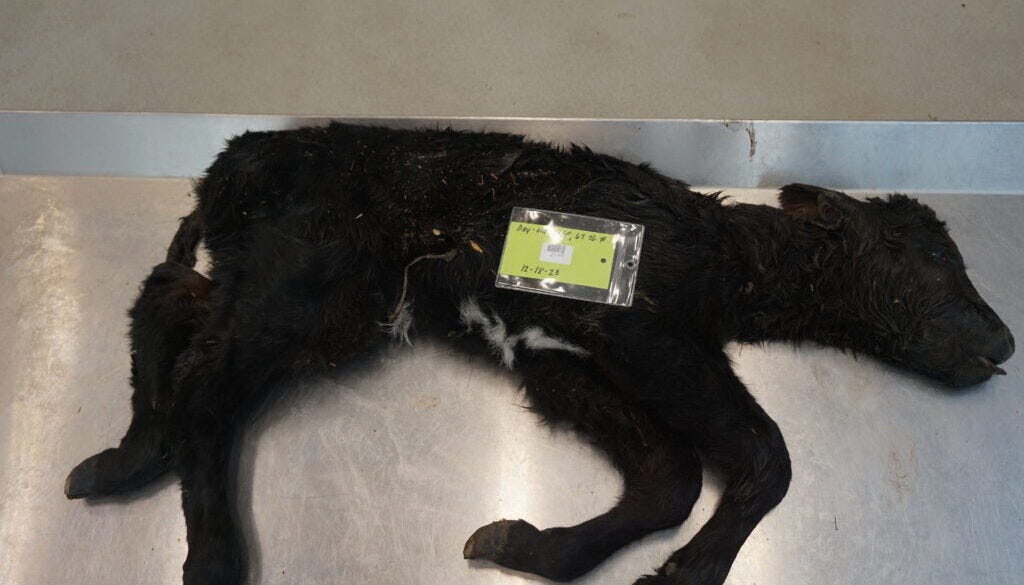Must-read recap: The New Lede's top stories
Farmers, watchdog group demand EPA act on PFAS in biosolids; conservation groups plan to sue EPA for "toxic mountains;" Texas farmers sue over PFAS contamination; California's plastic bag ban 2.0.
Texas farmers, watchdog group demand EPA act on PFAS in farm fertilizer
In the wake of fresh evidence that US farms are being poisoned by PFAS-laden fertilizers, a watchdog group and two Texas farm families said Feb. 22 they plan to sue regulators to try to force protective actions.
The Environmental Protection Agency (EPA) has violated the Clean Water Act by failing to regulate at least 12 per- and polyfluoroalkyl substances (PFAS) in treated sewage sludge (biosolids) applied to agricultural lands, allege Public Employees for Environmental Responsibility (PEER) and the farmers in a notice of intent to sue sent Feb. 22 to EPA Administrator Michael Regan. Studies have linked these particular PFAS chemicals to asthma, disrupted thyroid hormones, immune suppression, kidney problems, lung issues in children, and other health effects, the letter says.
The agency has also unlawfully failed to include in its regular biosolids reports at least 18 additional PFAS chemicals that scientific studies indicate are present in biosolids, PEER and the farmers allege.
PEER and the farmers will sue the EPA within 60 days if the agency does not take immediate action, said PEER executive director Timothy Whitehouse in the notice of intent to sue. (Read the rest of the story.)
Citing “toxic mountains,” conservation groups file notice of intent to sue EPA
US regulators are failing to address toxic “open-air dumps” that in some cases tower many hundreds of feet tall and hundreds of acres wide, according to a group of conservation and public health advocates who have filed a notice of intent to sue the government to force protective action.
The advocacy groups represent people in multiple states who live near the manmade dumps that store massive amounts of a radioactive substance called phosphogypsum, which is generated in the process of creating phosphoric acid for fertilizer. Phosphogypsum and its leachate can contain several hazardous substances, including arsenic, lead, cadmium, and chromium. These substances are considered carcinogenic and known to induce damage to multiple organs, even at lower levels of exposure, according to the National Institutes of Health.
Communities in Florida, Texas, Louisiana and other states are at risk from these dumps, according to the groups. There are four “Superfund” abandoned hazardous waste sites in Idaho, Illinois and Mississippi, where phosphate plants once operated.
The fertilizer industry creates 46 million tons of phosphogypsum each year, more than the amount of regulated hazardous waste produced in all other industries combined, according to the notice of intent to sue. In Florida, alone, there are more than one billion tons of phosphogypsum stored across 25 stacks, the groups say. (Read the rest of the story.)
Dead livestock and poisoned water — Texas farmers sue over PFAS contamination
Two Texas farm families have seen their health decline, their pets and livestock sickened and killed, their water poisoned and and their property values wiped out due to high levels of chemical contamination linked to a company marketing treated sewage sludge as a fertilizer and soil conditioner, according to a lawsuit filed by the families.
The lawsuit alleges the plaintiffs’ farms, located near Fort Worth, were “poisoned by toxic chemicals” after a neighboring farmer took shipment of “smoking” piles of biosolids that contained hazardous per- and polyfluoroalkl substances (PFAS) in late 2022.
The PFAS-laced fertilizer was allegedly made by Synagro of Texas-CDR Inc., using semi-solid treated waste obtained from wastewater facilities. The waste, referred to as biosolids, has been promoted as an effective means for turning sewage into useful agricultural applications that can boost crop yields.
The biosolids are supposed to be treated to remove toxins, but PFAS chemicals are difficult – if not impossible – to break down, and are known to persist in the environment. Sometimes called “forever chemicals,” several types of PFAS are known to be hazardous to human health, including some linked to cancers. (Read the rest of the story.)
Postcard from California: After plastic bag ban backfires, lawmakers seek a fix
(Opinion columns published in The New Lede represent the views of the individual(s) authoring the columns and not necessarily the perspectives of TNL editors.)
Ten years ago, Californians threw away an estimated 157,000 tons of plastic bags, about 8 pounds for each person in the state. To stem the tide of polyethylene piling up in landfills, polluting parks and beaches, and imperiling wildlife, that year California enacted the nation’s first statewide ban on single-use plastic grocery bags.
It didn’t work.
In 2021, the latest year for which figures are available, Californians tossed out more than 231,000 tons of plastic bags – almost 12 pounds per person.
Now lawmakers in Sacramento are trying again.
A pair of bills introduced earlier this month – SB 1053 and AB 2236 – would ban the use of all plastic bags by groceries and other stores that sell food. That means not only the flimsy single-use bags covered by the 2014 law, but also the thicker bags that technically can be reused and recycled, but almost never are. (Read the rest of the opinion column).





The first article “Texas Farmers, Watchdog Group Demand EPA act on PFAS in Farm Fertilizer”
Includes the following with a linked Sierra Club white paper on retail products sold to consumers for home garden use, which contain PFAS and PFOS:
“The Sierra Club and the Ecology Center of Michigan tested nine biosolids-based fertilizers used by home gardeners, finding PFAS in all of them. When PFAS enter the environment through biosolids, the toxic chemicals leach into the soil and water and are absorbed by plants.”
Names products.